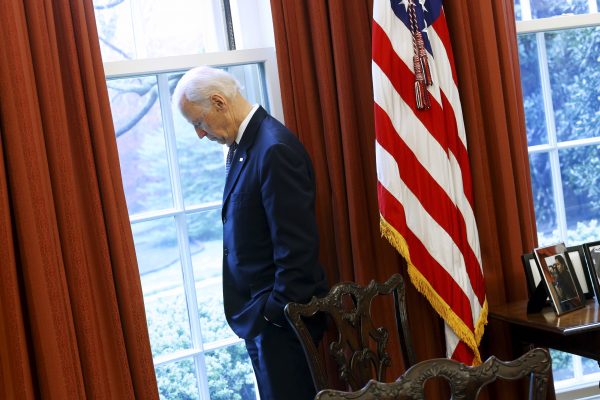They want US domestic politics to stop at the water’s edge, even as their own domestic politics require complicated detours. They want Washington to commit to them, but do not want to choose between Washington and Beijing. They want US involvement — but not too much. Often, they are disappointed.
The key to success in US alliances is that most countries have no better alternatives. Countries in the region have no greater reservoir of trust in their neighbours than in the United States, and Washington brings advantages of diplomatic heft, an economy of scale and a capable expeditionary military.
One weakness of the US alliance system is that most of its regional allies don’t like each other much. Another is that they are economically enmeshed with China, while the United States — never the most reliable ally — is more self-absorbed than usual.
While the Biden administration portends some Asia policy changes, they will likely be less than anticipated. There is a strong bipartisan consensus that the ‘responsible stakeholder’ approach to China is unsustainable — China’s behaviour indicates it does not want to accept the existing order.
Some scholars argue that ‘great power competition is not a coherent framework for US foreign policy’, that it ‘risks confusing means and ends, wasting limited resources on illusory threats and undermining cooperation on immediate security challenges’. But competition does not mean ‘unrelenting struggle’, and President Biden is making it clear that a more confrontational approach to China does not preclude cooperation on climate or non-proliferation.
Two US experts on Asia policy, Michael Green and Evan Medeiros, argue that ‘an ambitious new strategy’ is required, entailing the ‘bold and somewhat risky moves [of past US administrations] that confirmed American strength, decisiveness and leadership’.
Their daunting list of requisite policies includes a digital trade agreement, a government–private sector infrastructure alliance, an Asia-specific initiative to set rules on state competition and the United States to volunteer to host APEC in 2023. And that’s before they address the specifics of cooperation over infrastructure, bringing European allies into the mix for ‘economics, technology, human rights and climate’, or doubling down on the United States’ role as a security provider.
While all good ideas, it is unlikely they will eventuate. But the failure of these ambitions will not result in China’s hegemony. The prevailing view of China is as a stampeding success, sweeping aside the existing order and supplanting US influence. But, as Michael Beckley’s work demonstrates, China’s growth model is more expensive than it can afford. We may already be seeing a stalling — and potentially failing — China.
A failing China brings problems of a different character. Increasing repression at home and aggression abroad may reflect a country seeking to claw as much change as it can while it sinks. Even if China’s predation is the result of its accomplishments, its choices are strengthening the antibodies against its continued success.
China as only a formidable regional power would still complicate US and allied security. Preserving US attention and leadership in Asia may be harder if China doesn’t pose a global challenge. But the failure of China’s global ambitions will also diminish countries’ willingness to accede to Chinese power plays, so the equation may balance.
US baseball pitcher Satchel Paige once advised: ‘Throw strikes. Home plate don’t move’. He meant that there is no substitute for doing the things that are known to succeed. The same is true for US foreign policy. If the Biden administration wants allies to make difficult choices with costly consequences, it must make some itself.
Green and Medeiros argue that Biden should re-join the Trans-Pacific Partnership, but ‘domestic politics won’t allow him to do so’. That’s not strictly true. They mean that the Biden administration is in favour of trade protection and has six months before Trade Promotion Authority expires, allowing Congress to modify any agreements. It doesn’t want to expend the political capital to get a trade agreement ratified by Congress.
The same goes for ratifying the UN Convention on the Law of the Sea, a treaty that the United States was instrumental in negotiating, abides by and enforces, but will not ratify. The gaps between the policy poses Washington strikes and the effort it is willing to make has made allies sceptical of US leadership.
The Biden administration is putting human rights front and centre in its political messaging, but while rhetoric about the importance of protecting human rights shapes most public statements by both Secretary of State Antony Blinken and National Security Advisor Jake Sullivan, policy actions beyond economic sanctions are not yet apparent.
The United States does not need a sweeping and bold agenda to preserve the existing international order against Chinese efforts to establish a new order Focussing on a few key areas is probably good enough, given the cost of the choices China is making. Fortunately for a solipsistic society, paramount among those areas is strengthening the domestic foundations of US strength.
Kori Schake is Director of Foreign and Defence Policy Studies at the American Enterprise Institute (AEI).
An extended version of this article appears in the most recent edition of East Asia Forum Quarterly, ‘Asia after Biden’s election’, Vol. 13, No 1.

